What is Dog Aggression and How to Stop it?
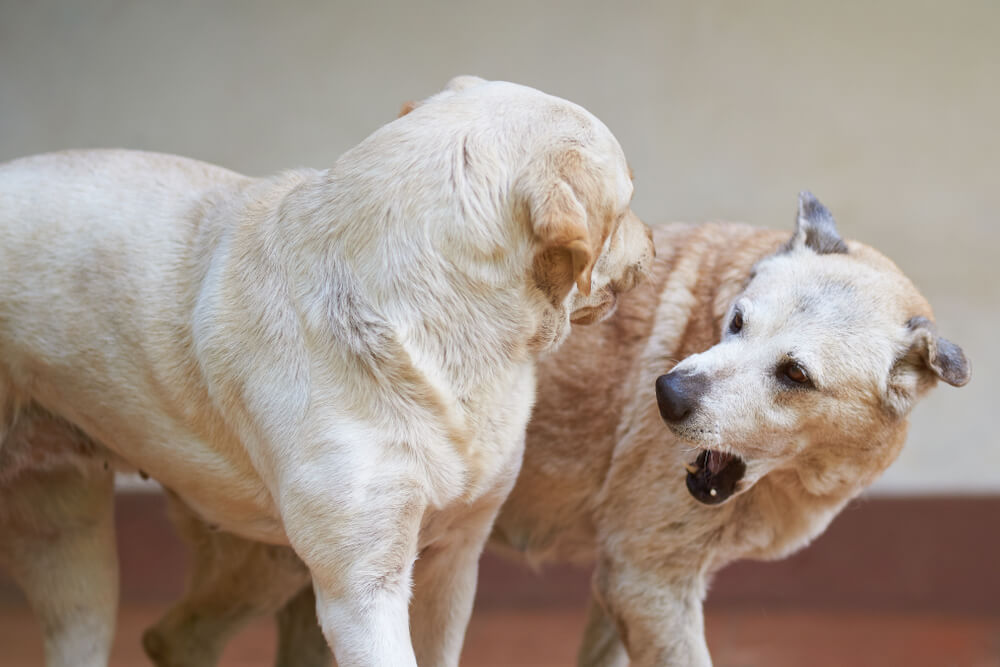
Table of Contents
Listen To The Article
Introduction to What is Dog Aggression and How to Stop it
When it comes to dog aggression, most owners are in the dark.
They know their dog is acting out against someone or something, and they know that it’s wrong, but they don’t know how to stop it.
Dog aggression is most commonly directed at a person or another animal. Your dog may be aggressive toward you, another person, or an animal.
There are all sorts of reasons why a dog might show aggressive tendencies, but the good news is that most aggressive behavior can be modified.
Aggressive behavior problems usually fall into one of two categories: dominance or fear.
The first thing to do is get to know your dog better. Take the time to learn about your pet’s body language and how she communicates.
Dog aggression involves aggressive behavior by dogs toward other dogs or people. While many dogs show some possessive behavior toward other dogs or people, especially those that come into their territory, dog aggression is a more serious issue.
Dogs that are aggressive toward other dogs often have owners who think it is cute when their puppy growls at other dogs.
This aggression can become a major problem when the dog is older.
When it comes to modifying aggressive behavior, the key is to be consistent and stay calm.
A dog’s aggression is not the dog’s fault.
The dog might be reacting to a situation that is not liked by them.
It involves aggressive behavior by dogs toward other dogs or people.
While many dogs show some possessive behavior toward other dogs or people, especially those that come into their territory, dog aggression is a more serious issue.
Dogs that are aggressive toward other dogs often have owners who think it is cute when their puppy growls at other dogs.
This aggression can become a major problem when the dog is older.
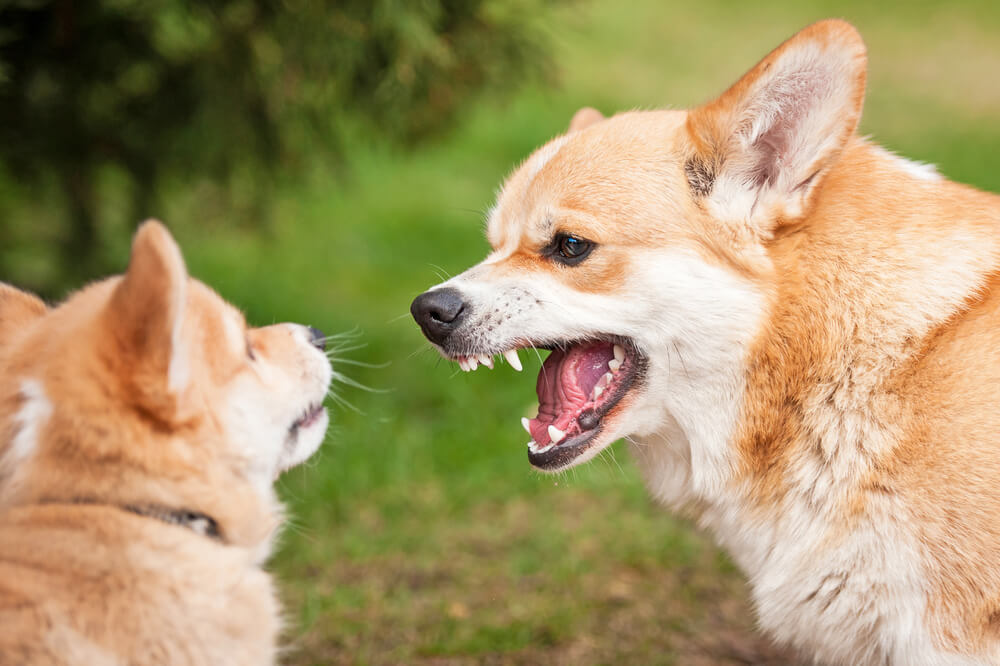
What Is Dog Aggression?
When someone says their dog is aggressive, the first thing that comes to mind is that they have a dog that bites, but aggression can mean a lot of different things.
Some canines keep their aggression toned down and never act out more than the occasional growl, while others can attack other dogs or even people.
Whatever the signs of aggression your dog displays, the most important thing is to understand what triggers the behavior.
There are many different reasons why a dog might be aggressive and knowing what the underlying cause is will make treatment easier and more efficient.
Even though dog aggression is among the most serious behavioral problems you might have to deal with, it is still just that, a behavioral problem that can be corrected.
It is one of the more difficult to handle though.

Signs of Aggression in Dogs
How can you tell if a dog is nervous to the point of being aggressive?
What kind of body language and signs is a precursor to an attack?
Knowing the answer to these questions can help you anticipate aggressive behavior, and, hopefully, stop it in time.
Apart from Sudden Onset Aggression syndrome, which is a rare condition, an aggressive attack can always be predicted by the specific behavior that precedes it.
Here are the most common signs of aggression in dogs:
- Stiff body posture
- Ears pinned back
- Growling
- Baring Teeth
- Snarling
- Bites of different intensity (from light snipping to puncturing bites)
- Causes: Why Is My Dog Aggressive?
To be able to truly understand how to stop dog aggression, you’ll need to find out what makes your dog aggressive in the first place.
It’s very rare for a dog to become violent out of nowhere.
Most often, the main culprit is a lack of proper socialization and training, but there are other causes that can contribute to this issue.
Here are the most common causes of dog aggression:
- Pain or illness
- Fear
- Establishing dominance
- Protecting territory or possessions
Maybe your feisty furball has a stressor that makes them rage, or they are acting out as a consequence of past trauma.
In case your dog suddenly starts acting aggressive, it might be their way of signaling they’re in pain.
But how are you to know, for sure, what is the cause of your dog’s violent behavior?
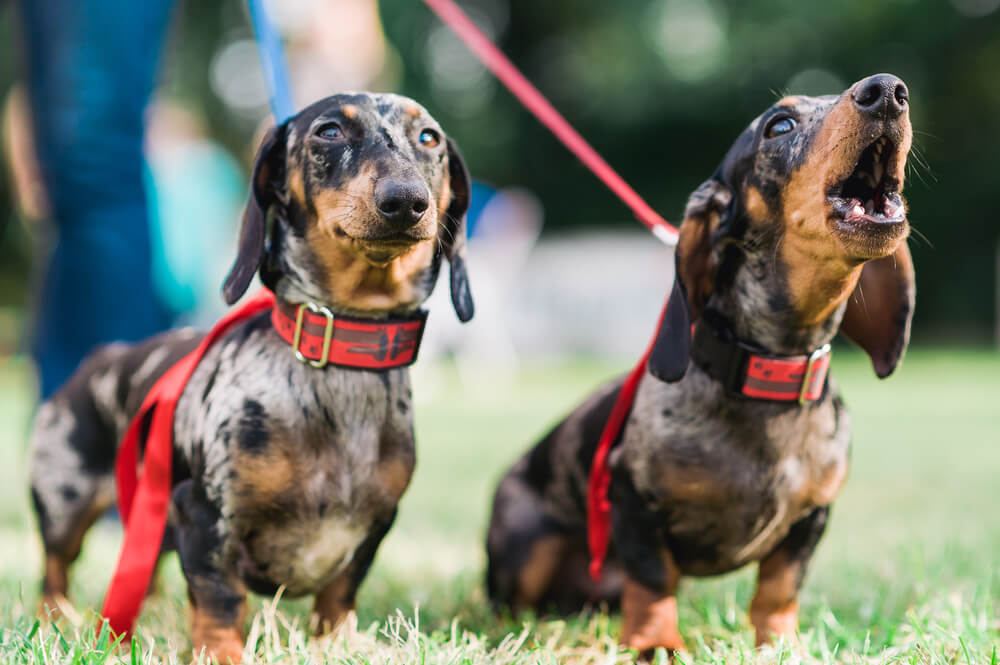
Why Do Dogs Behave Aggressively?
Aggressive behavior in a dog refers to any behavior connected with an attack or an impending attack.
This includes becoming still and rigid, growling, snarling, baring teeth, lunging, and nipping or biting.
Your first step toward stopping this behavior is to figure out what is causing your dog’s aggression.
Some dogs growl as someone approaches them while they’re eating or chewing a bone, for instance. Others react aggressively toward children or strangers.
The aggression doesn’t have to be directed toward a person either.
Some dogs become aggressive around other animals, only specific animals, or toward inanimate objects, such as wheels on vehicles or yard equipment.
The key thing to keep in mind is that you can’t come up with a plan to modify your dog’s behavior until you know the reason behind it.
Territorial Aggression
The dog defends its space or your home from what it deems to be an intruder.
Protective Aggression
The dog protects members of its pack against another animal or a person.
Mother dogs are also extremely protective of their puppies and may become hostile toward anyone who goes near them.
Possessive Aggression
The dog protects food, chews toys, bones, or another object of value to it. This is sometimes called resource guarding.
Fear Aggression
The dog is fearful and tries to retreat in a scary situation, but then attacks when cornered.
Defensive Aggression
Similar to fear aggression the dog attacks in defense of something rather than trying to retreat first.
These dogs have generally given other, more subtle, indications that they want to be left alone before biting, such as turning their head away.
Social Aggression
The dog reacts aggressively to other dogs in social situations.
Dogs that are not socialized properly with other dogs and people may also exhibit aggression.
Frustration-Elicited Aggression
The dog behaves aggressively when it’s restricted on a leash or in a fenced yard.
When the dog becomes stimulated and can not act on that stimulation, it may act out.
Sometimes a dog may become overly excited, such as before a walk, and nip its handler.
Redirected Aggression
The dog might become aggressive toward a person who attempts to break up a dog fight.
It may also happen when the dog can’t reach the target of its hostility, such as a neighboring dog on the other side of a fence.
Pain-Elicited Aggression
The dog shows aggression when it’s injured or in pain.
Sex-Related Aggression
Two male dogs or two female dogs become aggressive when vying for the attention of a mate.
This applies to intact animals and can be avoided by spaying and neutering dogs.
Predatory Aggression
The dog behaves aggressively without much warning when exhibiting predatory behavior, such as when chasing wildlife.
This instinct may become a serious danger when a child is playing chase with the dog.
It may start out as an innocent game, but dogs with predatory aggression may quickly turn on and possibly bite the child.
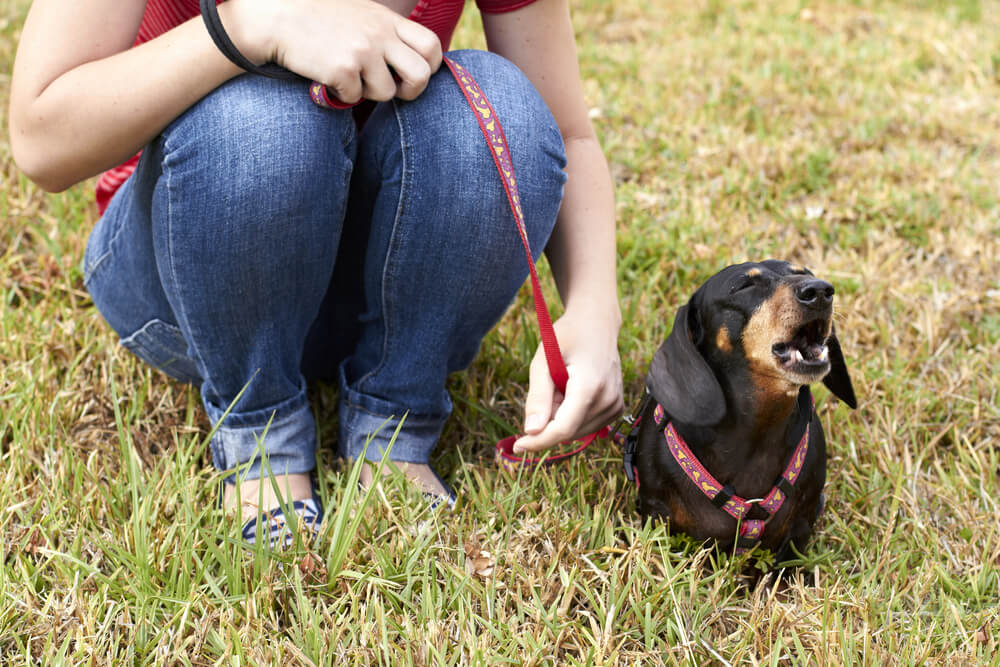
How To Help A Reactive Dog?
- Remove the source of your dog’s stress, fear, or arousal, or take your dog away from the situation.
- Act to prevent the situation from happening again. As an example, if he is growling because he doesn’t like someone approaching him when he is eating, then make sure he is fed in a room on his own until you can seek professional advice.
- All dogs are different and are worried about different things so learn to observe your dog so you can tell how they are feeling and so how they are likely to behave. Most aggression only happens because owners unwittingly put their dogs in situations they can’t cope with.
- If aggression becomes a regular behavior or if you are concerned it might do, or if you feel threatened by your dog in any way, seek professional help immediately.
- If your dog shows any of the behaviors detailed above when approached by a child, immediately remove the child and avoid all encounters with children while you seek a referral to a behaviorist. The same goes for any other people in the family or that your encounter. Never take chances with anyone’s safety it’s better to be safe than sorry.
- Seek professional advice sooner rather than later for all cases of aggression.
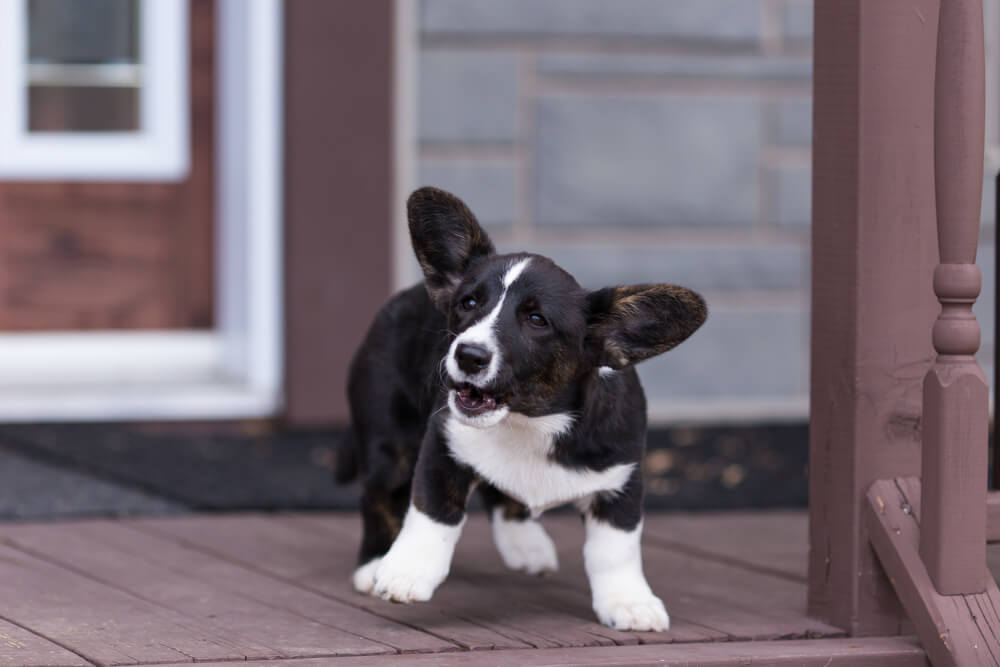
How to Stop Aggression
Make a note of when your dog becomes aggressive and the circumstances surrounding the behavior.
This will play an important part in determining your next step.
It is essential to deal with the underlying cause of the aggression.
The behavior is just a symptom of an underlying problem.
There are a number of ways you can manage hostility and help your dog remain calm.
It will take time, consistency, and possibly the help of a professional.
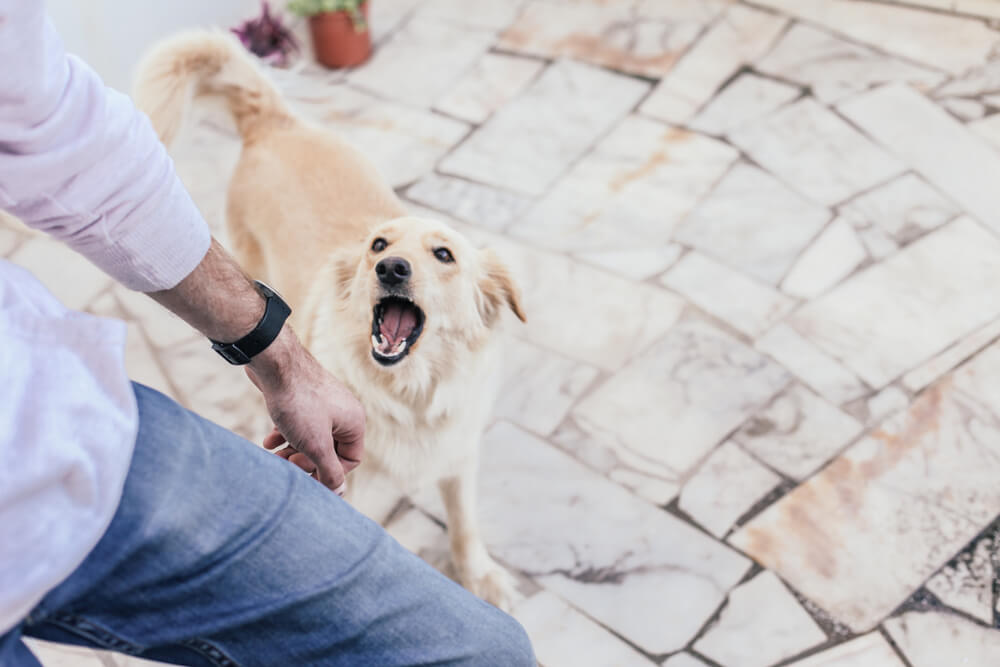
See Your Veterinarian
Dogs that aren’t normally aggressive but suddenly develop aggressive behaviors might have an underlying medical problem.
Health problems that may cause aggression include hypothyroidism, painful injuries, and neurological problems such as encephalitis, epilepsy, and brain tumors.
Talk to your veterinarian to determine whether this is the case with your dog.
Treatment or medication may make big improvements in your dog’s behavior.
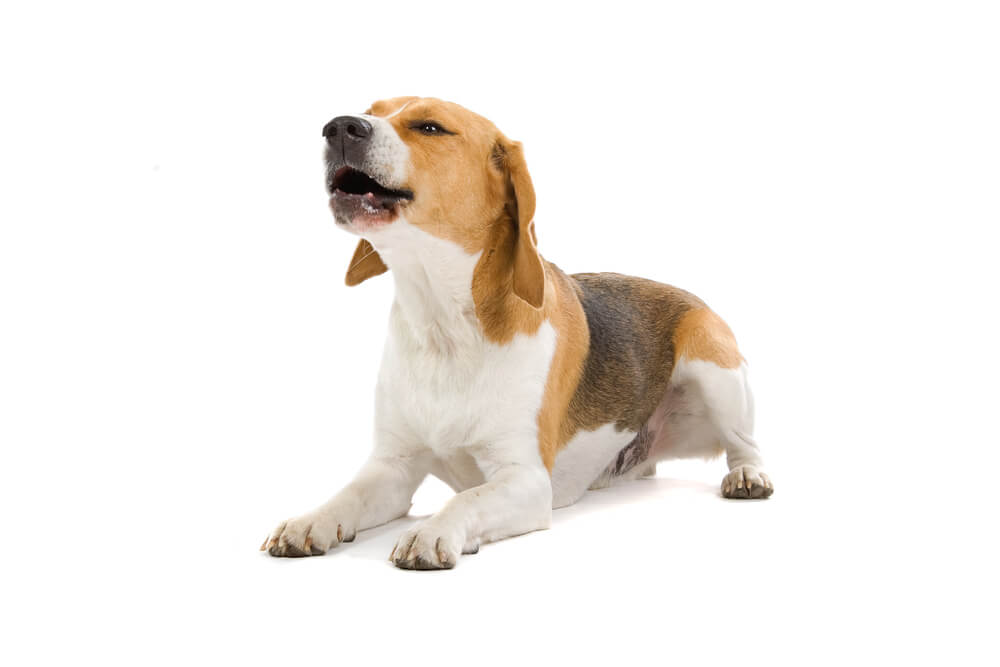
Avoid Punishment
Punishing your dog for aggressive behavior usually backfires and can escalate the aggression.
If you respond to a growling dog by hitting, yelling, or using some other aversive method, the dog may feel the need to defend itself by biting you.
Punishment may also lead to your dog biting someone else without warning.
If you punish a dog for growling, he may not warn you the next time he gets uncomfortable, but may simply bite.
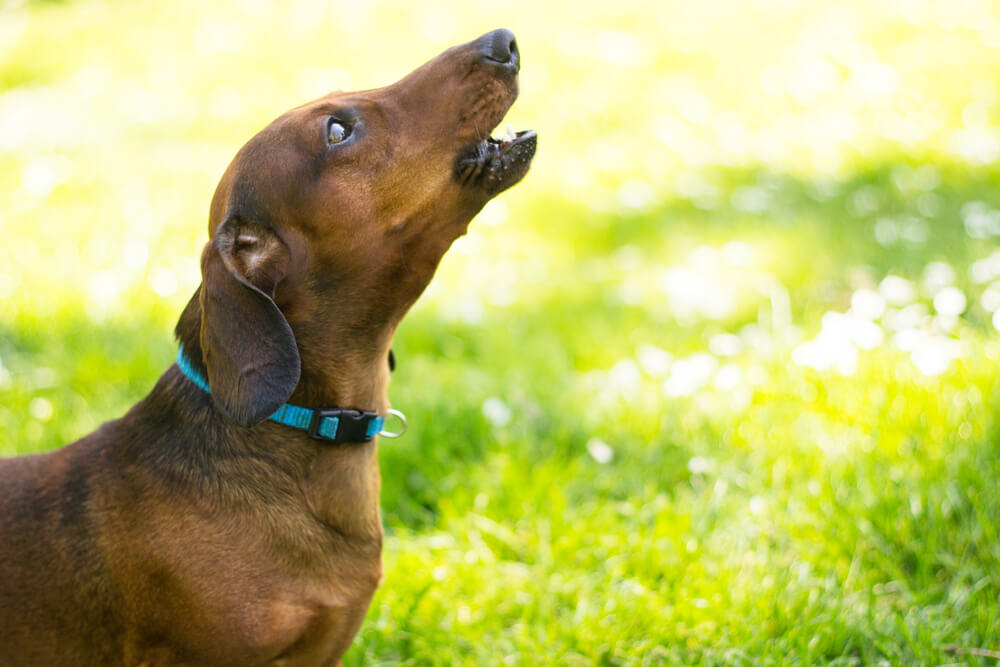
Call in a Professional
If your vet has ruled out a medical problem, it’s time to call in a professional dog trainer or animal behaviorist.
Because aggression is such a serious problem, you shouldn’t attempt to fix it on your own.
A professional can help you figure out what’s causing your dog’s aggression and create a plan to manage it.



